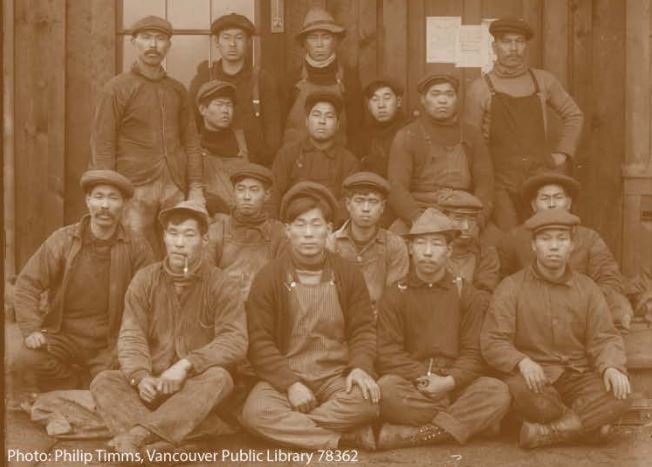Vancouver’s history of discrimination against its own Chinese population is on the agenda at City Hall.

City council received a report on Tuesday detailing the legacy of racism against Chinese immigrants, and is expected to vote this week on moving ahead with a formal apology.
Chinese residents in Vancouver were barred from voting in municipal elections between 1886, when the city was incorporated, and 1948. They were also prevented from holding municipal office.
Vancouver also advocated for discriminatory immigration policies, including the Chinese Head Tax, and implemented city policies that attempted to segregate Chinese residents.
WATCH: Province of B.C. apologizes for historical wrongs to Chinese Canadians
Segregation policies targeted schools, public spaces like pools, hospitals and even cemeteries — a fact that meant some Chinese immigrants had to be returned to China for burial according to the report.

Get breaking National news
The city also restricted the jobs Chinese Canadians could work, barring them from working for the city from between 1890 and 1952, and also often including anti-Chinese clauses in contracts with contractors.
In presenting the report, Vancouver’s social policy and projects lead Baldwin Wong said while conditions have improved, there are systemic issues that persist to the present day.
“Many newcomers encounter challenges in seeking employment, not because they are not experienced enough or skilled enough, but really the lack of so-called local experiences or language skills.”
WATCH: Federal government apologizes for rejecting Sikh immigrants on the Komagata Maru
Council will hear from public speakers on Wednesday ahead of an anticipated vote. If the report is adopted a formal apology from the city is expected to follow.
Also on the agenda at council on Tuesday was a renewed push to have the city’s historic Chinatown listed as a world heritage site.
Back in 2011, then-federal environment minister Peter Kent described Chinatown as a worthy nominee for the United Nations Education, Scientific and Cultural Organization (UNESCO) status.
However, Wong said that might be a challenge since the city missed a 2016 federal deadline to be considered.
“Although we mentioned that the federal government’s tentative list is closed now, we hope that with the leadership from mayor and council, they can persuade the senior government to have a second look at that.”

















Comments